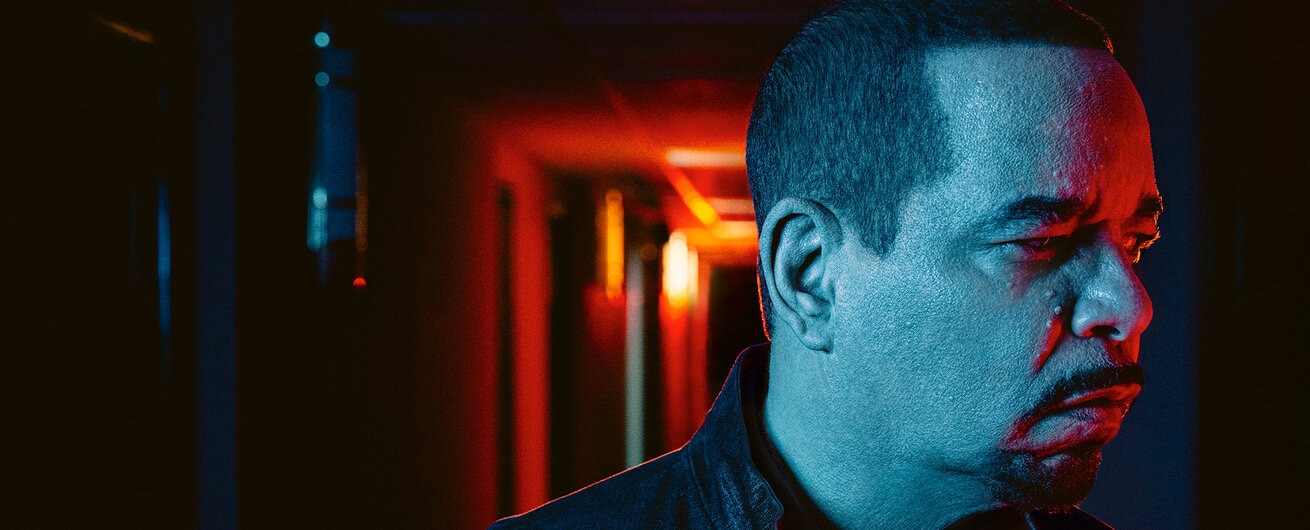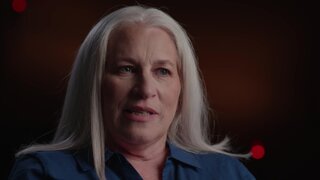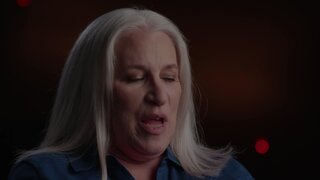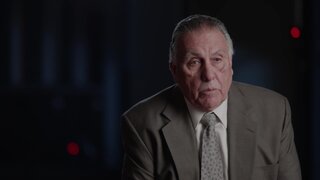Create a free profile to get unlimited access to exclusive videos, breaking news, sweepstakes, and more!
Promising Young ‘Pit Bull’ Of A Lawyer Slashed To Death By Her Husband In Her Office
Chiquita Tate and Greg Davis were a seemingly happy Baton Rouge couple — until she was found dead in her law office in one of the most brutal murders local police could remember.

Chiquita Tate dove headfirst into criminal defense after passing the bar on her first try, taking on tough cases and even helping clients with adoption issues.
Tate was the first in her family to go to college and had an undying belief in the legal system. She even had a tattoo of Lady Justice on her back, CNN reported. The 34-year-old had her own practice in Baton Rouge, and friends and family described her as a “pit bull” in the courtroom, according to “In Ice Cold Blood” on Oxygen.
But on Feb. 20, 2009, her husband, Greg Harris, called 911 early in the morning. Tate had been pulling an all-nighter while preparing for a high-profile murder trial, and she had stopped answering her phone. He wanted help getting into her law office to see if she was OK.
She wasn’t.
Her office was strewn with books and paperwork, and blood was everywhere. Tate lay dead on the floor, parallel to the wall. There were many stab wounds, but one in her neck was almost immediately recognizable as the lethal blow.
Baton Rouge Police Sgt. Elvin Howard, Jr. described the scene as “the most brutal murder I’ve ever worked or witnessed.”
It was clear that Tate had put up a fight from the position of her arms, authorities told “In Ice Cold Blood.” It was also clear that her killer had kept stabbing her after death.
“It was passionate in an evil way,” Prem Burns, a former first assistant district attorney from Baton Rouge, told producers.
There was no indication of a robbery, but there was a possible trove of DNA evidence to be swabbed. Significantly, Tate still held a clump of hair in one hand — her attacker’s, they assumed. It was taken to be analyzed.
Burn recalled that before she left the crime scene, she leaned over Tate and whispered, “I will make this right for you.”
As a matter of course, police first questioned Harris. He told police that he had come by the office to bring Tate some food the night before. After his wife told him she had to keep working, Harris went straight home, he said. The couple had been married for just over a year and Harris insisted to police that they didn’t have any problems.
Investigators also looked at the clients Tate was defending. Brothers Dearius and Denako Duheart were accused of burning a man to death and had allegedly been connected to witness’ deaths in the past, according to the Advocate. If Tate were to die or disappear, the brothers’ upcoming murder trial would automatically get a continuance — that was a potential motive, Burns told producers.
However, both men were sitting in in jail at the time of the murders. Detectives needed a new tack. Soon, police were flagged on an open warrant for Harris. The charge: domestic violence.
The late attorney’s husband was forthcoming about the incident, however. He insisted it had happened months ago, he and Tate had moved past it, and he had simply forgotten to show up for court.
Still, he was placed under arrest and held in jail while investigators continued their work — making a crucial discovery. Police had recovered Tate’s wallet in the high-crime Gardere Lane area, about nine miles away from where her office was. Although Harris had already told investigators that he went straight home the night of the murder, they asked him: When was the last time he was on Gardere Lane?
In police interview footage featured on “In Ice Cold Blood,” Harris quickly responded, “Gardere Lane? I was there last night.”
Harris explained that, as a bodybuilder, he often purchased steroids, and Gardere Lane happened to be where his dealer lived. Police in the room played it cool, but Howard told producers, “I wanted to fall out of my chair.”
Luckily, police knew Harris wasn’t going anywhere for the time being while they continued their probe. The DNA evidence they’d collected was not enough to put them closer to a suspect and they found that the clump of hair in Tate’s hand was from a weave.
However, an anonymous phone tip sent police in another direction. A woman called, alleging that Tate had been involved in a love triangle with two female clients. Given the segment of a weave they recovered from the scene, investigators decided to pursue the lead. However, after interviewing both women in question — Tate had been trying to arrange an adoption for them — police quickly realized it was a dead end.
So, they tracked the person who called the tip in to Dallas, Texas, hoping she would explain herself. It was none other than Greg Harris’ sister. She insisted it wasn’t her who placed the call, but it furthered investigators’ suspicions about Harris: Why would someone point them in the wrong direction on his behalf?
Looking closer at the couple’s relationship, police found that Tate had threatened to leave Harris before and that, a month before the murder, she had rented an apartment for herself with three months paid in advance. Harris was also having personal financial troubles.
“At that point, red flags were flashing all over the place,” Howard told producers.
On March 4, with Harris still in jail, police executed search warrants on his car and home. When they used luminol to examine the home, they found a tremendous amount of blood traces on various surfaces, including around the washer and dryer, and in a closet. Also, a box of weaves was stashed under Harris’ bed.
Investigators pulled the 911 tape from the earlier domestic violence incident and were chilled by the fear in Tate’s voice as she alleged that Harris had choked her and broken her arm. DNA testing also indicated that the blood found in the apartment belonged to Tate. But when police confronted Harris, he wouldn’t crack.
They charged him with second-degree murder and the high-profile trial finally began in March 2011. Harris armed himself with one of the area’s top defense attorneys, according to “In Ice Cold Blood.”
During the 16-day trial, Harris’ attorney, Lewis Unglesby, argued that someone else committed the murder, telling CNN, “I don’t know anybody that thinks he did it, except the police.”
The jury returned a guilty verdict — on the charge of manslaughter. Prosecutors and Tate’s family were devastated, Burns told “In Ice Cold Blood.”
In speaking with the jury, Burns said, she found that members were convinced a manslaughter conviction would carry the same penalty as second-degree murder. When she explained that that wasn’t the case, several members of the jury started crying, she told producers.
Still, Harris was sentenced to the maximum: 40 years without the possibility of parole.
“I just hope that’s the longest, hardest 40 years of [his] life,” Tate’s sister Juantonja Tate said.
For more on the Chiquita Tate case, watch “In Ice Cold Blood” at Oxygen.com, and airing Thursdays at 9/8c.



















